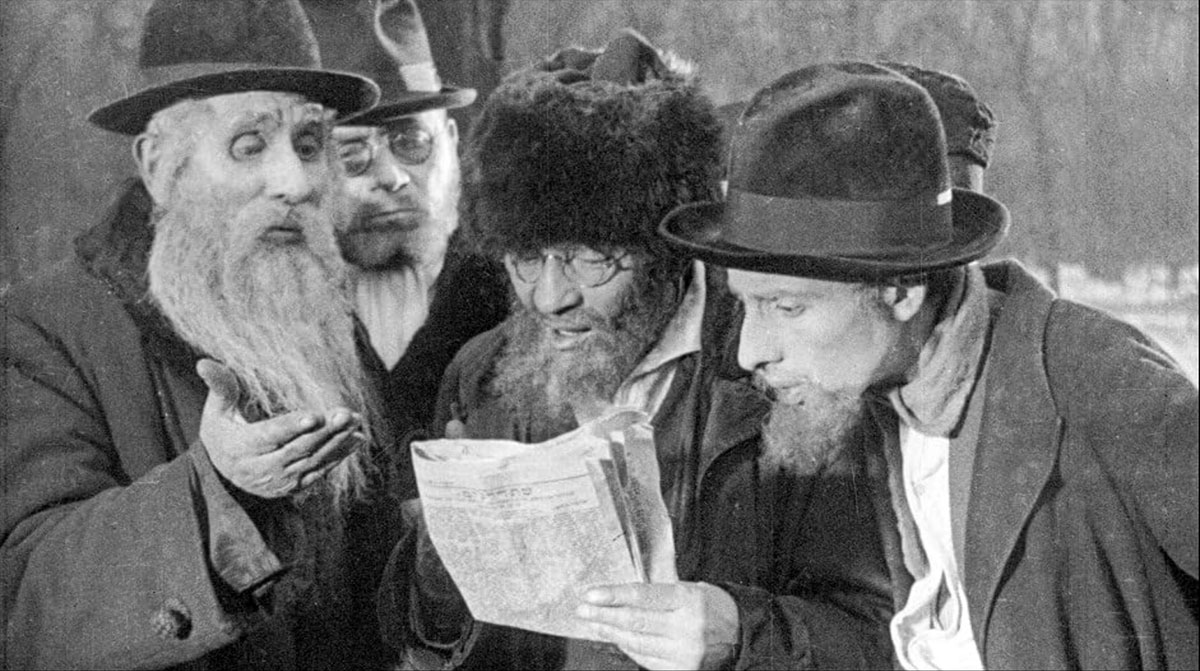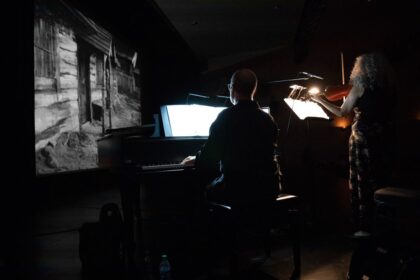Silent film gives voice to saga of Jews in pre-WWII Vienna

Sixteen years before Anschluss — Hitler’s annexation of Austria and implementation of antisemitic decrees — Jewish-born writer Maximilian Hugo Bettauer published a satirical — and many say prophetic — novella, “The City Without Jews.”
Adapted for film by Hans Karl Breslauer two years later, the plot is set in the imaginary city of Utopia (a stand-in for Vienna), where the National Assembly has passed a law — first met with celebration — that forces the Jewish population to leave the city. Soon after, however, the city’s residents confront the cultural and economic decline apparently engendered by the absence of Jews.

The black-and-white silent film premiered in Vienna in 1924, and its critique of antisemitism drew the ire of Nazi sympathizers, one of whom murdered Bettauer a year later. But after the last public showing of “The City Without Jews” (Die Stadt ohne Juden) in Amsterdam in 1933, the widely popular film, in its full version, disappeared for eight decades — until a collector discovered a nitrate print in a Parisian flea market in 2015.
Recognizing the film’s significance at a time when far-right politicians were again gaining support in Europe and abroad, the Austrian Film Archive held a crowdsourcing campaign to restore it, and the new version premiered at the San Francisco Jewish Film Festival in 2018.
Now, the historic film will get its Clark University debut, with live original music composed and performed by klezmer violinist Alicia Svigals and silent film pianist Donald Sosin. Open to the public, the screening will be held Tuesday, April 4, at 8 p.m. in Razzo Hall, Traina Center for the Arts, 92 Downing St.
“Seeing a film with live music is unusual and completely unique, and Svigals and Sosin are the best performers doing this. It’ll be a wonderful experience,” says Matt Malsky, director of the Higgins School of Humanities and the Tina Sweeney, M.A. ’49, Endowed Chair in Music.
As part of a new, interdisciplinary, graduate-level course, Vienna: 1890-1938: Capital of Tradition, Innovation, Promise, and Peril, students are studying Bettauer’s 1922 novella and Breslauer‘s 1924 Expressionist film. The course is team-taught by Frances Tanzer, Rose Professor of Holocaust Studies and Modern Jewish History and Culture and assistant professor of history, and Benjamin Korstvedt, professor of music.
On Tuesday, the students will meet online with Lisa Silverman, associate professor of history at the University of Wisconsin, Milwaukee, who is an expert on “The City Without Jews.” Silverman will speak at Clark on Friday, April 21, as part of a two-day symposium tied to the class, which has received a Clark Innovation Grant.
“Now, after 1945, the film and the novella are treated as a premonition of the Holocaust and also often interpreted as a lesson that we need to value diversity in the present,” Tanzer says.
The film and the novel are quite different, she explains. While the film may come off now as “heavy-handed,” she says, “the novella originally was seen as satirical and kind of light-hearted. The author is very critical of antisemitism and responds to it using satirical humor. In the 1920s, that was possible. Bettauer’s approach grew out of a context where Jews were an integrated minority, and their removal was unthinkable, indeed ridiculous. It’s hard to see the lightheartedness of it now in the aftermath of the Nazi period and the Holocaust.”
The April 4 screening and performance are co-sponsored by the Sunrise Foundation for Education and the Arts and, at Clark University, the Department of Visual and Performing Arts, the Sweeney Endowed Chair in Music, the Higgins School of Humanities, the Strassler Center for Holocaust and Genocide Studies, and the Jewish Studies Program.
Watch ClarkNow for an upcoming story on the course Vienna: 1890-1938: Capital of Tradition, Innovation, Promise, and Peril.


